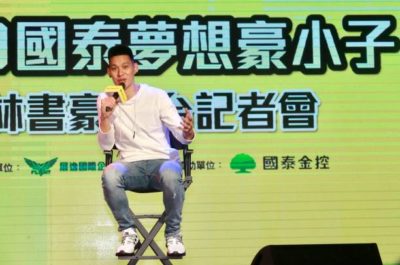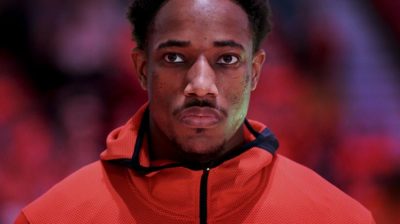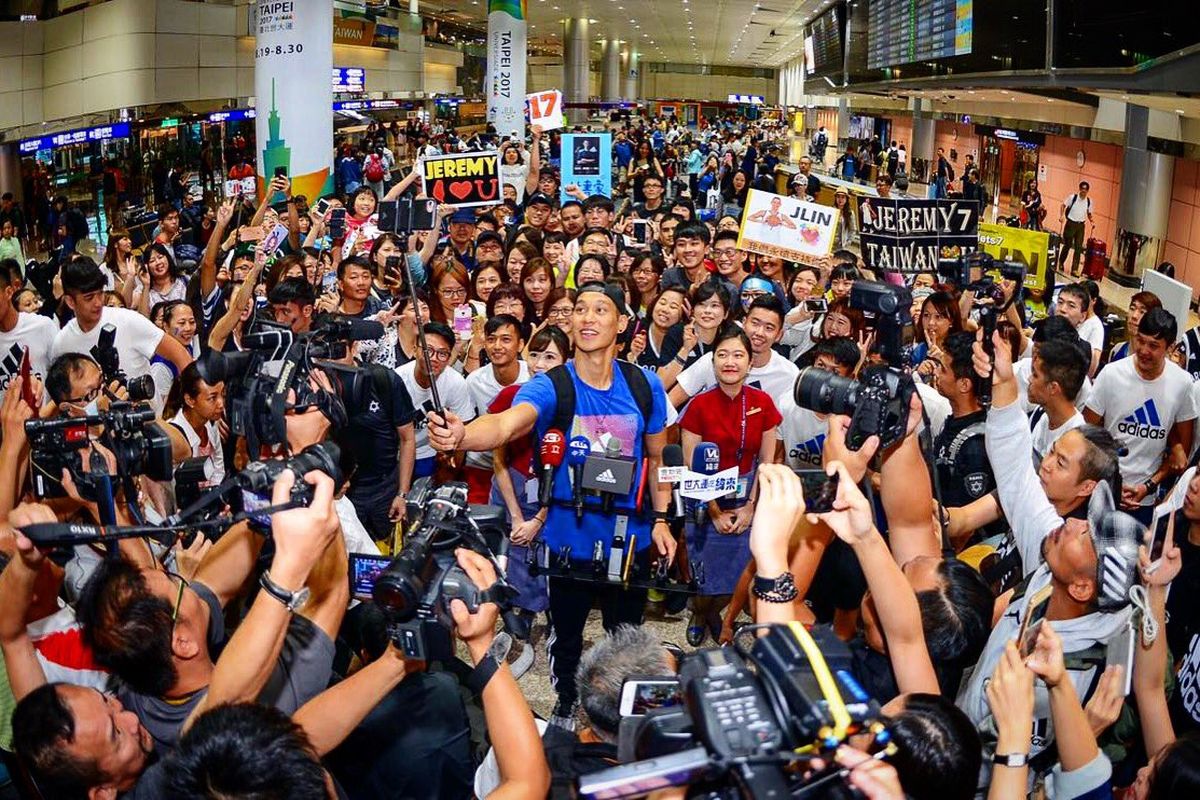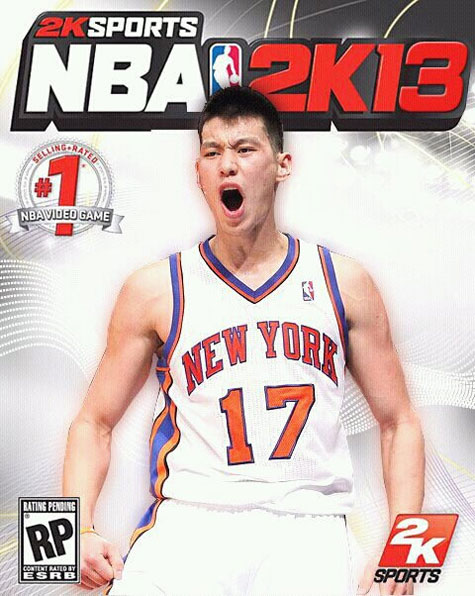When Jeremy Lin got up to speak, he was embarrassed.
This season the nine-year veteran finally recovered from the injuries that plagued him during his prime years, won an NBA Championship with the Toronto Raptors, and was a returning hero to a region in which he is beloved to an unparalleled degree. Yet he still couldn’t shake that feeling.
“After the season I had to get ready for this Asia trip and it was the last thing I wanted to do,” Lin said during a speech for television outlet GOOD TV in Taiwan. “Because I knew for six weeks I would have to just put on a smile, I would have to talk about a championship that I don’t feel like I really earned, I would have to talk about a future [in basketball] I don’t know if I want to have. And honestly, it’s just embarrassing. It’s tough.”
It is jarring to see the tears stream down the former Raptor’s face as he admits this. Yet, it is even more unsettling to see Lin, an NBA player and global superstar, be so bluntly honest in front of the public. While NBA teams quickly fill up their rosters ahead of training camp, the 30-year-old has become an afterthought. Instead of providing the regular scripted sports cliché response to this, Lin told the world how he really felt.
“I came into the NBA a young, brash kid who thought he was going to take over the world. Nowadays I spend more time thinking about quitting,” said Lin. “Free agency has been tough, because I feel like in some ways the NBA has kind of given up on me.”

NBA players, including Lin, are rapidly becoming some of the most recognizable faces on the entire planet. With that added celebrity comes an even greater alienation to the outside world. Although players in the modern era are more accessible than ever and can directly communicate with the public by sending out a handful of tweets or by posting a live video on Instagram, there is still a filter present on this method of engagement. There is always a brand to be built and a carefully crafted message to be delivered.
In fact, this era defined by player empowerment has caused fan’s obsession with the athlete to supersede the support for their own favourite team. Players and their brands are becoming monoliths that are larger than life. As they grow, they also become more distant.
All of this made Lin’s comments even more uncomfortable. Not in a bad way, but in a way that was humanizing in an industry that is built upon creating and selling superhumans.
“My fear for my career has always been to not be the player that I knew I could be. Now I’m face to face with that,” said Lin. “I’m just confused, sad, and mad. All of these emotions.”
For basketball viewers, the television gets turned off after Kyle Lowry hoists the Larry O’Brien Trophy above his head or when Kawhi Leonard caps a championship parade with his iconic laugh. These players and their involvement in our lives is over (beyond the odd social media post), until they reemerge for tip-off in October. The moment that the ball is bounced once again, the clocks are reset and players are subject to our judgement.
This is not a bad thing! Professional sports are competitive; their purpose is to entertain and provide viewers the ability to escape into a different world, one that is secular from their reality. But this doesn’t mean the players themselves are not real.
Stories about Kevin Durant, one of the greatest players of a generation, being despondent after winning his first ever NBA title trickled out. DeMar Derozan opened up about his struggles with depression and anxiety. Kevin Love quickly followed suit. Last year, Kelly Oubre spoke about being perceived as someone that is larger than life.
“We’re normal human beings. We face a lot more adversity, a lot more problems… It’s a little bit more amped up, we just can’t show it,” Oubre told NBC Sports. “I feel like people who are on the outside looking in don’t really understand because they see us as superheroes, but we’re normal people, man. We go through the issues that normal people go through.”

These moments in which players reveal themselves to be human and vulnerable are there, but they also get swallowed up by the endless news cycle that fuels the league. They are surpassed by the rapid news of player movement and ludicrous trades that in past years could only be conceived of in a video game simulation. The continual Woj-bombs and the aftershock it causes lends itself to a soap opera for our consumption. This produces pure entertainment to sink our teeth into and hypotheticals to pontificate over, but there is a cost: it lessens our ability to empathize with these players as people.
It’s not only the fans that fall into categorizing these athletes as anything but normal. As an aspiring writer, it is impossible not to view players as a commodity, a piece on the chessboard to be moved. Again, this is not a bad thing. The tactical decisions in the NBA, both on the court, in roster construction, and in salary cap navigation is what makes it so enticing to cover. There are so many strategic maneuvers by player and team that are best conducted in the coldest, most business-like fashion possible in order to achieve the desired outcome. The last two offseasons for Toronto has indicated as such, both as instigators and recipients of Leonard transaction news.
Yet, when Lin speaks, it is an ever so brief reminder that this sport that we all love is merely a game and the players who we rest our hopes upon, paint murals of, and cuss out to our coworkers when they fail, are merely human beings, just like you and I.




